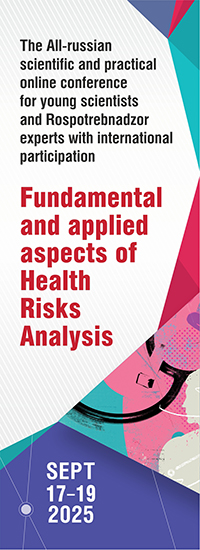The monograph "Health risk analysis in the strategy of state social and economical development" has been published
This monograph summarized the experience of scientific and methodological approaches to the health risk analysis and their use in solving strategical and tactical tasks of the state administration in the field of the assurance of sanitary and epidemiological welfare of the population and compliance of the consumer rights.
It covers the stages and prospectives of the development of health risk analysis methodology, states theoretical domestic and foreign approaches to various aspects of population health risk analysis. Taking into account the internationally recognized principles, this paper proposes methodical approaches to risk analysis and its evolution under the influence of various factors of the environment, products, environment and lifestyle on the health.
It indicates the peculiarities of the population health risk management including making management decisions based on the spatially-temporal modeling of risk distribution, economic evaluation, improvement of risk oriented model of the control and supervisory activities, medical-preventive technologies to reduce the effects when exposed to risk factors, represents the general principles, states the methods and model of risk communication.
It discusses the legal aspects of the health risk analysis in Russia and abroad. It summarizes approaches to optimize public health monitoring based on the health risk assessment, methodological approaches and practices to evidence the harm to health caused by exposure to risk factors, the practice of risk assessment and management using methods of evolutionary modeling.
The ways to improve the state policy in the field of risk minimization and integration of health risk analysis in the solution of strategic objectives of the state socio-economic development are presented here.
The publication is intended for professionals working in the field of public administration, at the bodies and institutions of the Federal Service on Customers' Rights Protection and Human Well-being Surveillance, scientific and educational institutions, interns, graduate students, doctoral students, and practitioners of preventive health.




